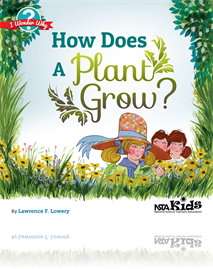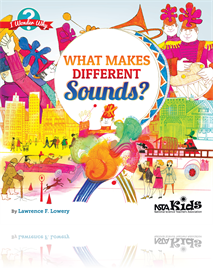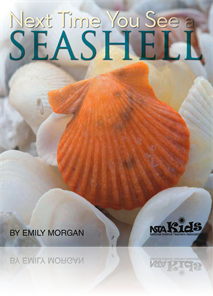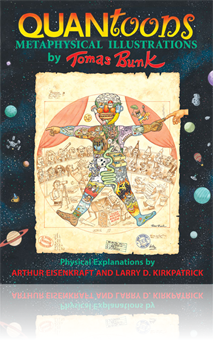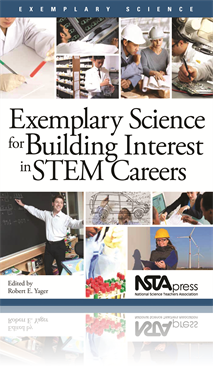All Book Chapters
Book Chapter
Sunsets are some of the most beautiful sights in nature. You might hear people say, “The Sun is ‘going down,’” but that’s not what is actually happening. Have you ever wondered what’s really going on? This sample chapter gives you just a...
Book Chapter
Plants Can Grow Different Parts—How Do Plants Grow?
In this opening sample from How Does a Plant Grow?, curiosity will be ignited! Readers can see how this book will inspire children to be alert to the many wonders of the plant world, from how seeds sprout to why leaves turn to the light to the vital ...
Book Chapter
A man in the band was striking an instrument called a triangle. It made a ringing sound. “That sound reminds me of wind chimes,” said Jane. “The triangle makes a soft ringing sound when it vibrates,” added Jim. ...
Book Chapter
In this sample from Next Time You See a Pill Bug, you can compare the pill bug to the other crustaceans. ...
Book Chapter
Seashells are some of the most beautiful objects found in nature. Have you ever wondered where they come from? ...
Book Chapter
Iron is solid, mercury is liquid, and nitrogen is a gas. Liquid nitrogen is used to perform lots of interesting and fun experiments. Demonstrations exploiting the extreme cold of liquid nitrogen provide entertainment for children of all ages. This ch...
Book Chapter
In response to the national call for more scientists, Steppingstone School for Gifted Education responded by establishing the Steppingstone Magnetic Resonance Training (SMART) Center, which will be described in this chapter. In collaboration with Bru...
Book Chapter
The Promise of Service-Learning as an Instructional Approach to Motivate Interest in STEM Careers
While the promise of service-learning for increasing interest and achievement in mathematics and pursuing mathematical careers is apparent, little research has been conducted to show that the promise can be reached. This chapter provides the results ...
Book Chapter
Real World Externships Exposing Students to Possible Careers in STEM Disciplines
For secondary teachers of mathematics, science, and technology, Real World Externships help them answer the legitimate student query: “Why am I ever gonna need to know this?” with real challenges and problems encountered and solved in actual comp...
Book Chapter
The Talent Marketplace: Where Science Careers Are Made
In this chapter, aspects of science career planning and development are discussed from a different perspective, which at first glance may seem remote and overly theoretical. However, it is the author’s hope that, as the logic of the reasoning unfol...
Book Chapter
Scientists as Partners in K–12 Science: Engineering, Science, and Technology Careers
While scientific specialization has been responsible for many remarkable and rapid advances within scientific disciplines, this strength becomes a weakness when it comes time for members of various disciplines to cooperate. The Iowa Academy of Scienc...
Book Chapter
Science Olympiad: Inspiring the Next Generation of Scientists
As our nation faces a decline in homegrown scientists and engineers, Science Olympiad continues to provide content and experiences that motivate teachers and students to become (and remain) passionate about STEM. Science Olympiad events provide a wea...
Book Chapter
Active Learning as a Way to Interest More Students in Science Careers
In this chapter, the experiences of a science educator and two technology education (TE) classroom teachers are offered. The school is a rural middle school in a Midwestern state where authors collaborated to promote active learning environments, whi...
Book Chapter
Why STEM? Why Now? The Challenge for U.S. Education to Promote STEM Careers
The authors began this chapter with two central questions: (1) Will revitalizing STEM education, especially in America’s high schools, guarantee that graduates will choose STEM pathways in college or STEM careers when they graduate? And (2) Is it w...
Book Chapter
The authors begin the chapter with an assessment of the current state of science teaching and learning in elementary schools. This is followed by an examination of our collaborative work with elementary teachers. The authors describe their approach t...



